Smoking and dental practices often conflict with each other. But today we are not talking about the dangers of nicotine, but about the first inhalation after dental procedures. Can I smoke immediately after tooth extraction? How long does it take to smoke a cigarette without fear of harm? What is the harm of smoking after tooth extraction? You will find the answer to these questions in the article.
TREATMENT MEASURES
After extraction of the tooth, a bleeding wound remains in place. If the wisdom tooth is removed, a large wound remains in its place. To stop the bleeding, the dentist closes the wound with a cotton swab soaked in a medical solution, which must be removed after 20 minutes. After removing the fleece, a small blood clot forms in the hole of the missing tooth, which should never be removed. This clot is a guarantee for bone regeneration and promotes rapid healing of a fresh wound.
Do not try to remove a blood clot from the well: this is necessary for rapid tissue regeneration.
The dentist will treat the hole with a healing compound and after removing the wisdom teeth must take a course of antibiotics. But antibiotics are not prescribed in all cases, but if a molar with curved or overgrown roots has been operated on.
When a large wound surface is formed, sutures may be required. In this case, the first inhalation can be done only 2 or 7 days after this procedure. It all depends on the ability of the tissues to repair themselves. During this period, the sutures will be healed and the doctor will remove the surgical sutures.
NICOTINE EFFECT
Everyone has heard of the effect of a drop of nicotine on a horse's life, but they still smoke. How does addiction affect dental and oral health? It turns out that nicotine causes great damage to the mucous membranes, larynx, lungs. Nicotine irritates the mucous membranes, provokes various diseases of the oral cavity and promotes tooth decay.
Cigarette smoke contains a complex combination of different resins and chemicals that will inhibit tissue healing. The situation is complicated by the penetration of these substances into the blood through the salivary fluid. During bloating, many toxic substances enter the human body, including hydrogen cyanide and hydrocyanic acid.
Nicotine and cigarette smoke are toxic to the tissues of the mouth. Smoking is allowed only after complete recovery of the damaged mucosa.
Nicotine can have a mild relieving effect, relieving stress by stimulating the production of hormones of happiness. However, the harm to the body from it is much more than good. This should not be forgotten when justifying your habit with an analgesic effect.
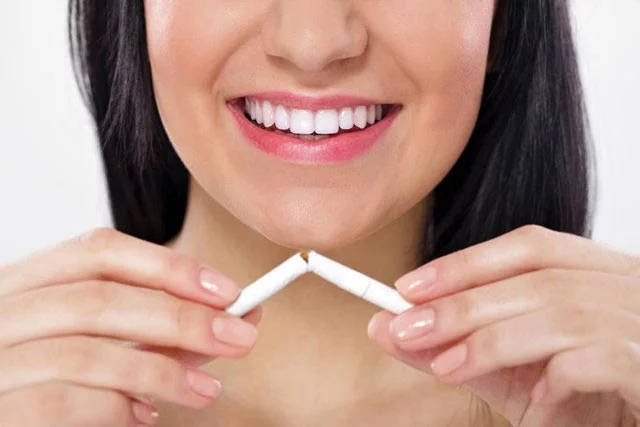
The negative effects of smoking after tooth extraction:
- development of the inflammatory process in the tissues of the oral cavity;
- development of the inflammatory process in the hole - alveolitis;
- increase blood pressure, remove a blood clot.
Claims about the beneficial effects of nicotine on stress relief are not supported by scientific experiments. In fact, cigarette smoke creates the illusion of relieving stress, in fact exacerbating the negative manifestations on a physiological level:
- tachycardia;
- angina pectoris;
- increased breathing;
- dysfunction of peristalsis;
- muscle tension.
Therefore, after removing the molar, you should refrain from smoking for as long as possible, preferably for several days. The carcinogens contained in tobacco smoke are deposited layer by layer on the surface of the wound, causing enormous damage to health.
ALVEOLITE
The first harm from inhaling a cigarette after surgery: nicotine dries the well. In order to carry out timely and successful tissue regeneration, a moist environment is needed. However, cigarette smoke contributes to the drying of the mucous membranes, which negatively affects the wound surface of the hole.
The dry hole is a testing ground for the activity of pathogenic bacteria that quickly provoke inflammatory processes. In severe cases, inflammatory processes will end in alveolitis, a serious disease. With this pathology, the walls of the hole, which is formed after the removal of the molar, become inflamed.
Causes of alveolitis:
- violation of tissue integrity as a result of injury;
- fresh wound infection;
- impaired coagulation dynamics.
Symptoms resemble intoxication of the body with waste products from pathogenic bacteria:
- muscle pain;
- headache;
- nausea and weakness.
In addition to the general symptoms of intoxication, characteristic signs of gingival pathology appear: mucosal edema, swelling of the facial muscles from the focus of inflammation. Osteomyelitis with the formation of a fistula canal with a constant outflow of pus can become a complication of alveolitis.
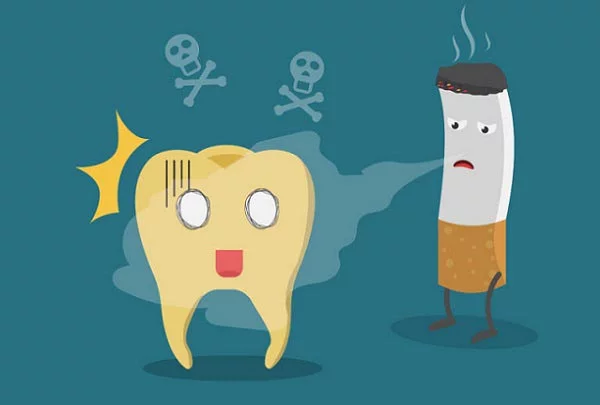
BLOOD PRESSURE
Smoking a cigarette temporarily raises blood pressure, which can lead to a simple blood clot popping up in the nest. This threatens the development of an inflammatory process due to infection in an open wound. The chemicals in cigarette smoke constrict the lumen of blood vessels, thus raising blood pressure. Vasoconstriction prevents adequate nutrition of the mucous tissues, which slows down the regeneration process.
HOUSTAN SMOKING, VIPING
Hookah is believed to be less dangerous for smokers due to the use of refined tobacco. That's right? Purified tobacco smoke is indeed less harmful to health, but has the same negative effect on the wound surface. It settles on the mucosa, interferes with normal blood circulation and provokes inflammatory processes.
With regard to the electronic analogue of cigarettes and hookah - wipe - the ban also applies. No resins are released during the wiping process, but other toxic substances are formed. They fall on the mucous membrane and the injured surfaces, damaging the smoker.
Delete composition:
- diacetyl; glycerin;
- propylene glycol;
- flavors.
Diacetyl flavoring is a particular hazard that becomes toxic when heated in a cigarette battery. In moderation, this substance is not dangerous to health, but if heated and consumed constantly, it can lead to serious pathologies in the lungs.
Inhalation of smoke leads to drying of the mucous membranes of the mouth, which opens the way for the multiplication and harmful effects of pathogenic bacteria.
Propylene glycol provokes allergies, accumulates in the tissues of the mucosa. This substance irritates the mucous membranes, causes inflammation and other pathologies. At high temperatures, glycerin and propylene glycol form formaldehyde and acrolein, which are harmful.
The use of a handkerchief by several smokers provokes the spread of infectious diseases, hepatitis, tuberculosis. The same can be said for a hookah if different people use the same pipe.
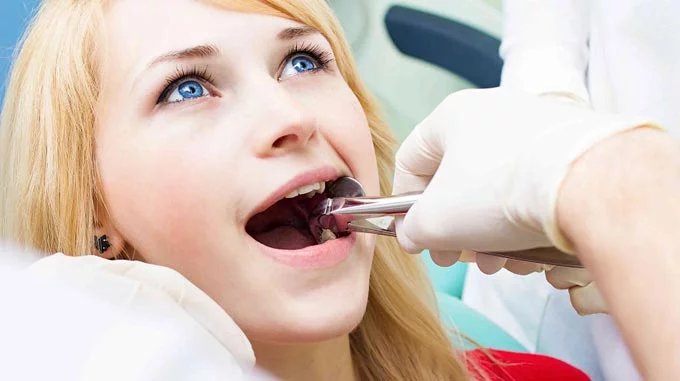
TEETH RECOMMENDATIONS
If there are no special problems with non-smoking patients, then many smokers do not offer many dental and orthodontic procedures. Smokers should not have surgery to enlarge jaw bone, suture soft tissue, or implant implants. During the tightening, the sutures may fall apart and the implant may fall off. However, with precautions and strict adherence to the recommendations of dentists, you can achieve results in smokers.
TIPS FOR DOCTORS
- A cotton swab with antiseptic can be removed 20 minutes after tooth resection, if this is not done, the bacteria will start to multiply;
- blood ball in the tooth socket can not be spat out or removed in any other way - protects the wound from adverse external environment, activates tissue regeneration;
- rinse your mouth with antiseptics very carefully so as not to accidentally remove the protective ball from the well;
- it is better to replace the usual mouthwash with solutions with trays - keep the solution in your mouth and then spit it out carefully;
- if a doctor has placed a medicine in the well, it should not be removed without permission;
- the first oral hygiene can be performed only the next day after the resection;
- if a doctor has prescribed a course of antibiotics, it must be followed;
- in case of severe pain it is recommended to take anesthesia; you do not need to suffer from gum discomfort.
If the removal operation was successful, the first inhalation can be done after a few hours. Distract yourself from the thought of a cigarette for at least 2 hours.
If the bleeding hasn't stopped after 2 hours, you can't think of a cigarette. Severe swelling can increase bleeding, then you will need to seek additional medical attention.
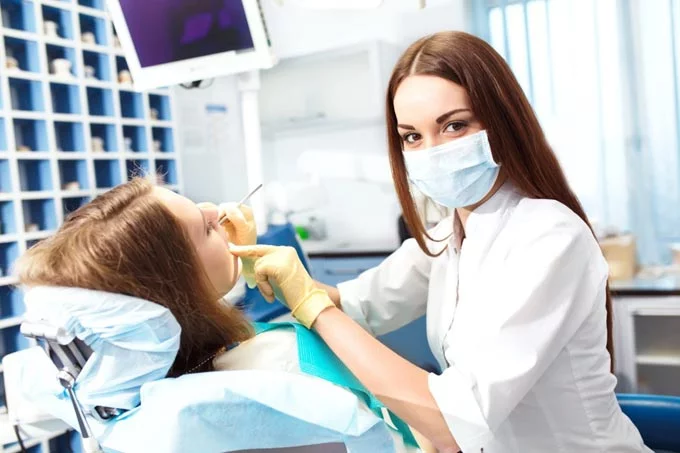
WHAT IS FORBIDDEN
- Clean, rinse mouth 24 hours after resection;
- take a steam bath, take a hot bath, sunbathe in the solarium - increasing the temperature will increase the bleeding from the wound;
- to train in a fitness club, gym, sports section - until the wound heals and the stitches dissolve;
- when stitches are applied, you can not only tighten, but even smile and open your mouth wide - the stitches will disperse quickly
- you can have breakfast after stress only after 2-3 hours; it is also not recommended to drink liquids (or gently through a straw);
- alcohol is strictly forbidden - it greatly dilutes the blood, the wound will begin to bleed;
- you should not drive on this day, it is better to call a taxi.
For a while you will have to give up the usual spicy, salty food, very hot / cold dishes. This means that you cannot eat ice cream, drink a cold fruit drink or freshly brewed coffee. Marinated mushrooms and pickles are also banned for some time, it is advisable to give up smoked meats.
You should also give up roughage: croutons, hard fruits, vegetables. You can't chew carrots and radishes for several days in a row. Food should be soft, not oversalted, not peppery. You will need to sit on a sparing diet for a few days until the tissues are completely healed.
WHAT YOU NEED TO DO
- Apply ice to the cheek if the pain is overcome - but keep such a compress for no more than ten minutes;
- warm herbal baths - they will soothe damaged tissues, relieve swelling, eliminate pain;
- take painkillers, anti-inflammatory drugs, except aspirin and analgin - they dilute the blood.
If you are undergoing medication, you should tell your dentist. He will adjust his medication. Some medicines affect the viscosity of the blood and cause bleeding, so their use should be stopped for a while.
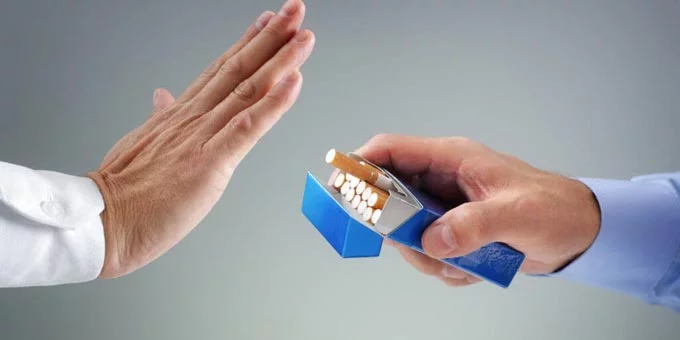
TOTAL
Cigarette smoke provokes the development of various pathological conditions that prevent the rapid healing of damaged tissues. Therefore, it is impossible to drag after removing the molar for several hours, and when suturing the gums - for several days. Smoke contains many toxic substances that fall on the damaged shell and cause damage.
Also, tobacco smoke dries the mucous membrane, which poses a danger to the blood ball inside the well - it is responsible for restoring the integrity of tissues, prevents the penetration of microbes.























